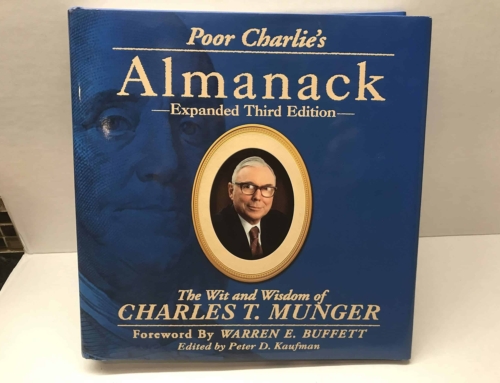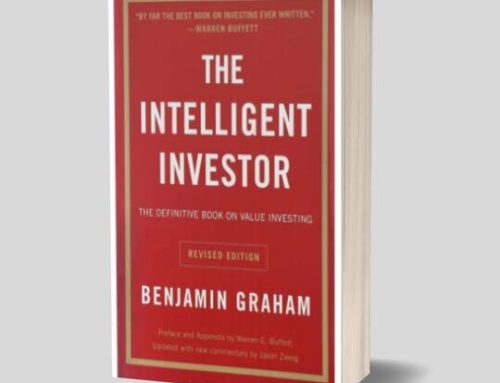The Psychology of Money
In this particular article, I want to share with you the key learning that I had from this book which is called The Psychology of Money, a very interesting book from which one can learn a lot. However, instead of focusing on the book, I will focus on the key learnings that I had from this book that I applied in my own real life.
Hence that will be of more meaning to you rather than just talking about this book. The book starts with a very interesting story of a person named Ronal James Read who came from a very poor background. He was a car mechanic for about 25 years and then for the next 17 years, he used to wipe the floors of showrooms.
However, at the age of 92, when he died, he made headlines because, at the time of his death, he had $8 million in his bank account and most of that money was donated to charity. Now, how did a person like him become a millionaire? That’s the question a lot of people started asking.
Well, it turns out that the secret of him being a billionaire was not that big of a secret. What he did was, throughout his life, whatever the minimum saving that he had, he used to buy stocks of blue-chip companies. That’s all he was doing and nothing else. The one unique thing which he did was never to sell a single share, no matter the type of market and during a crisis. He never churned his portfolio and the stock market did the rest.
Now in contrast to this story is the story of Richard Fuscone. Now Richard was a very smart guy. He went to Harvard and then joined a company called Merill Lynch, which was one of the biggest global investment management companies.
Soon enough, he also rose to a very senior rank in this company and became very successful. Though he was smart, he also had a very expensive lifestyle. For example, he bought a house which was about 18,000 square feet with 2 swimming pools, 2 elevators, 6 fireplaces,11 bathrooms, and a 7-car garage.
The house was so huge that he spent approximately $90,000 a month for its maintenance. Everything was going on well in Richard’s life until the 2008 financial crisis came along when he first lost his job.
Secondly, he was not able to maintain the property which he had because he had to pay this huge money every month. He first had to sell his property and then he had to declare bankruptcy just to come out of this whole situation. Now we have all heard about stories like this before. The moral of these stories is always the same and that is you have to live within your means, save and invest in the long run.
However, there is one thing that is more important and that is our relationship with money. How do we behave with money when we have it and how do we behave when we don’t have it?
That is exactly why we need to understand the psychology of money because, on the one hand, we have opportunities like Ronald Read, where we can create immense wealth in our life. On the other hand, we have the possibility of becoming someone like Richard Fuscone where we make expensive mistakes in our lives and lose whatever we have.
This book is all about our relationship with money and understanding its Psychology. Here are the key takeaways from this book.
1) Our childhood experiences shape our worldview.
Whatever we experienced when we were a kid, in terms of looking at our parents and our relatives’ accounts for 0.0000001 percentage of how the world works.
However, that view and understanding that we developed by watching our elders as a kid are what determines how we believe 80% of the time the world works. Some of us came from very conservative families.
The only way for them to invest was to create fixed deposits with a bank and not invest anywhere else. Some came from families that were active in real estate investments and some in buying Gold. Despite growing up, we do not forget what our parents did and often mimic their style of investing.
For example, in my case, I come from a humble background, and growing up, my family was not very savvy in terms of investments. We couldn’t save enough and had some Gold jewellery which was kept in our house locker for a very long time. When we had a financial crisis, we sold the gold jewellery to help us tide over the situation.
That experience has made me love Gold and believe it to be a safe investment and to be sold only as a last resort.
That is a very important question to answer today and at this age, because is Gold still a Haven, and is it a good match for my long-term goals? That’s a question that I have to answer today based on today’s ground realities and not based on the facts of yesterday.
In my childhood, I heard my father and his friends discussing the stock market as a purely speculative place and for those who wish to forsake their hard-earned money. He could have been true as the stock market was relatively new with hardly any regulation.No one had any information about investing in stocks and there were lots of scams in the stock market and hence considered very risky.
Today, the same perception might be false as the Indian stock market is extremely regulated, liquid, and information is available at the click of a button.
Hence should I carry and pass on the same perception to my kids? That when they are in their twenties and thirties and forties, they carry the same perception that the Stock market is all a gamble, right? So, we have to, at some point stop and ask that whatever perceptions we are carrying from our parents and our relatives, is still valid or not?
2) Power of Compounding
Now let’s talk about takeaway Number two and that is the power of compounding.
Suppose you invest Rs.10,000 into Bajaj Auto. In the first year, the shares rise 10%. Your investment is now worth Rs.11,000. Based on a good performance, you hold the stock. In the second year, the shares appreciate another 10%. Therefore, your Rs.11,000 grows to Rs.12,100. Rather than your shares appreciating an additional $1,000 (10%) as they did in the first year, they appreciate an additional $1,100, because the $1,000 you gained in the first year grew by 10% too.
We do not realize how powerful compounding is, but when we cross that threshold, then we see the real magic of compounding. Now let me explain this from a real-life example of two world-class investors, Warren Buffett, and Jim Simons.
Now I’m sure a lot of you already know about Warren Buffett and not much about Jim Simons. Both these investors are in their eighties and became billionaires by investing in the Stock market. As of today, Warren Buffett has a wealth of over $100 billion and Jim Simons has a wealth of about $23 billion, but here’s the thing. Warren Buffet’s return from the stock market is about 22% on an annualized basis whereas Jim’s returns from the stock market in the same period are about 66%.
If Jim makes 3 times as much as Warren Buffett, then why is his wealth not even one-third of the wealth of Buffett. The answer to this question lies in time. Warren Buffet has been investing ever since he was a kid, for about 70 years and hence it has generated an annualized return of about 22%. This is what has created this massive wealth that we see today.
Jim Simons, on the other hand, did not find his investing strategy until he was 50 years old. He, however, made substantial money since he discovered his strategy. The point that I’m trying to make here is that the power of compounding comes with time. What it means for us, the retail investors is that the longer we are invested in the market, the wealthier we get because the power of compounding starts working in our favor.
3) Do not move your goal post
This is interesting because we all like to grow in life. We like to set targets, and then once we meet those targets, we like to set more ambitious targets so that we can grow more in life.
At the beginning of our careers, especially during our 20’s, we plan to buy a house and have a few lakhs of rupees in our bank account. Once that is achieved, we plan to marry, and somewhere in our 30’s, we plan to buy a car. On achievement of these targets, we think of buying a bigger house and a bigger car. There is no harm in having an ambitious target because that ambition keeps us pushing to do more and more so that we achieve more in our life.
However, when it comes to our long-term goals, we also have to be honest with ourselves. This pushing of the goalpost is very good when we are in the initial stages of our life, but when we are in our 60’s or our 70’s, we cannot keep pushing this goalpost too far. You know, we had this goal up till this time, but I’m not happy with it and now I want to have something more. This essentially is one of the problems that we are facing in our society.
That despite generating so much wealth, people are still unhappy. Why? That is because we are living in the world of social media where everyone is trying to outrun the other and wants to display his wealth and economic status.
When we start comparing with others, whatever we have achieved in our life becomes small and insignificant. This leads to unhappiness and depression. The trick lies in avoiding comparing ourselves with others. Have some long-term goals, stick with them, and if you can achieve them, you have done enough. Just be happy and content that you got there.
4) You only need a few big wins.
Now, one of the biggest misconceptions that a lot of people have is that you have to make money from the stock market several times. The reality, though is that you only need a few big wins to win at this game. An example of this is the case of venture capitalists who invest in several hundred firms, knowing well that only of them will turn into a unicorn. Once that happens, the valuation of their investments in that particular unicorn will soar and the profits they realize would have dwarfed their investments in the rest of the firms.
So that venture capitalist just needs one Zomato, Paytm, or BYJU’S to not only recover the losses that they had from the other firms but to become immensely successful. That is the same kind of mindset that you have to bring in investing as well. Most of the time in the stock market, you will be an average investor and there is nothing wrong with it.
There will however be a very short period during which you have to make some risky decisions and what matters is how you behave on that specific day. Those specific weeks, specific days will decide whether you become immensely wealthy or you stay as an average investor. Napoleon Bonaparte had a very interesting saying:” A great leader is someone who behaves normally when everybody around him is going crazy”
In the same way, an intelligent investor can behave normally, rationally when everybody around him or her is behaving, irrationally is going crazy. So, what did you do when the stock market crashed in 2008?
What did you do back in 2008 when the market gave an amazing opportunity? What did you do last year in 2020 when the market gave such an amazing opportunity when the stocks of world-class companies were selling at rock bottom prices? Were you scared or did you see that opportunity to invest in these companies at such an amazing price?
Therefore, if you can focus on these opportunities when everybody else around is going crazy and if you can just be rational, you can be immensely successful.
5) What is the purpose of money?
Why do we need money? Now, I’m sure most of us, don’t pause and think about it, but it’s a very important question.
So just think about it. So back in my twenties, when I was earning and wanted to go out, my objectives of earning money were, to have a better house, to give all the comforts to my family. When I reached my thirties, my goals were to become financially independent and to secure the future of my kids.
However, now when I think about money, the purpose of having and making money is much more fundamental. The purpose of making money today for me is to gain freedom of my time. Freedom of, let’s say spending time with my kids, freedom to pursue my passions, without having to worry about what my boss is thinking or what somebody else is thinking.
The highest form of wealth is waking up every morning and saying to yourself that, today I can do whatever I want.
6) Wealth is what you don’t use
In this culture that we live in, we see a lot of people who are showing off that they have luxury cars and yachts and that they are making a lot of money. That’s what we believe they are like, rich people.
At the same time, there are a lot of other people who can afford to buy an SUV or a Mini Truck, but they choose to live simpler lives. To the people who are driving these big cars, those who are living this lavish lifestyle, we can call them rich. The people who have the capability of doing all this, but they choose not to do we call them wealthy.
Do you want to become rich or do you want to become wealthy? There’s nothing wrong with being rich or being wealthy, but if you want to be wealthy, there are a couple of things that you need to keep in mind.
The first thing is your ability to sustain because you have to keep spending money to stay rich. That’s how rich people are since they need to keep earning at a much faster rate because their standard of living will keep going higher. It’s much harder to stay rich as we saw in the case of Richard and it’s much, much harder to stay rich than it is to stay wealthy.
The second thing that you have to realize is that it’s very easy to have rich role models. It’s very easy to see the kind of lifestyle they’re leading, but wealthy people are the ones who have the money and capability, but they choose not to live that kind of lifestyle.
Those kinds of role models are very hard to find because of the very nature that they live simple lives. We don’t necessarily know that they have that kind of money and hence it’s hard to find wealthy role models. However, if you can find wealthy role models, you need to learn from them as much as you need to learn from people who are rich because both of them are successful. It is just that one decided to show off and the other decided to keep the money for having control over their life.
6) Being reasonable is better than being rational
The next takeaway is that being reasonable is better than being rational. Now throughout our life, we have been told that when it comes to the matter of money, investing, trading, whatever it is the case, whenever money is involved, you have to be cold and rational.
You have to look at the facts and make your decisions based on that. I agree for the most part that it is true, but we also have to realize that we are human beings and not robots. So, when we see this, it’s more like a spectrum and on one end of the spectrum, we have this cold hard, rational thinking.
On the other end of the spectrum, we have this emotional feeling-based decision-making and hence we need to avoid both ends of these spectrums. We need to find a middle ground where we can have decisions based on the facts, but at the same time, we need to be able to live with those decisions and this middle point is called being reasonable.
So, I’ll give you guys an example of this. For my daughter’s college education, I have a couple of portfolios and in one of those portfolios, I had some metal stocks and did extremely well. Some of them were making a 300% return on my investment.
I decided to book the profits in my portfolio and I decided to come out now, was I being rational? Was I being a completely cold, calculated rational person?
Probably not as there was no specific reason for me to exit. The stocks were doing perfectly fine and there was no specific reason for me to come out of the portfolio. Was I being completely emotional? Probably not because I was doing it is for my daughter’s college education.
I felt it was very reasonable for me to secure whatever gains the market gave me. This is the kind of thinking that I like to think is okay. Being rational is good but being reasonable is better because I can live with my decisions.
It made perfect sense from a reasonable perspective. However, the problem with a lot of people is that they come up with back-tested strategies, but two or three growth stocks. They opine that had you invested in these three stocks and stayed in this stock for say 20 or 30 years, you probably would have got a return of 20 or 30 times.
One of the favorite examples that these people give me is that of Titan.TITAN was a penny stock and had you bought it for Rs.5/- it would be now worth Rs.1000/-. That’s how people think when I pose a very important question to them that twice in the life of Titan, the stock fell more than 60% within one month and also as recent as in 2020. Assume that you invested Rs.1 crore in Titan, and you lost Rs.60 lakhs. Even if it was a notional loss and not a real loss, would you be able to go back to your home and tell your wife that we had Rs?1 crore until last month.
Just this one correction cost us Rs.60 Lakhs. All my back-tested result tells me that we will eventually make more money. Do you think it is reasonable to assume that your family will understand this? Basing our decisions on rational facts is one thing, but being able to live with those decisions is completely another.
Any reasonable person to assume that your family can live with the loss of 60% is not prudent. So, make decisions that are more reasonable than rational, because you can live with them and manage them. Have the right kind of diversification, even if it means that your returns are lower At least you can sleep well at night without having to worry about what will happen the next day.
So, these were the key takeaways from this book and, I hope that you learned something useful.
Key Takeaways
1- Insider trading refers to buying and selling securities (e.g. stocks) based on confidential information that is not available to general public
2- Every year, there are several cases of insider trading that come to light and there are hundreds more that go unnoticed.
3- SEBI (our stock market regulator) has been getting strict about dealing with insider trading.
4- SEBI has made insider trading punishable by imprisonment up to 10 years or a fine upto 25 crores
Howdy!
If you’re here for the first time, let’s get introduced.
VRD Nation is India’s premier stock market training institute and we (Team VRD Nation) are passionate about teaching each and every aspect of investing and trading.
If you’re here for the first time, don’t forget to check out “Free Training” section where we have tons of free videos and articles to kick start your stock market journey.
Also, we got two awesome YouTube channels where you can continue the learning process.
Must-Read Articles
The Psychology of Money
In this particular article, I want to share with you the key learning that I had from this book which is called The Psychology of Money, a very interesting book from which one can learn a lot. However, instead of focusing on the book, I will focus on the key learnings that I had from this book that I applied in my own real life.
Hence that will be of more meaning to you rather than just talking about this book. The book starts with a very interesting story of a person named Ronal James Read who came from a very poor background. He was a car mechanic for about 25 years and then for the next 17 years, he used to wipe the floors of showrooms.
However, at the age of 92, when he died, he made headlines because, at the time of his death, he had $8 million in his bank account and most of that money was donated to charity. Now, how did a person like him become a millionaire? That’s the question a lot of people started asking.
Well, it turns out that the secret of him being a billionaire was not that big of a secret. What he did was, throughout his life, whatever the minimum saving that he had, he used to buy stocks of blue-chip companies. That’s all he was doing and nothing else. The one unique thing which he did was never to sell a single share, no matter the type of market and during a crisis. He never churned his portfolio and the stock market did the rest.
Now in contrast to this story is the story of Richard Fuscone. Now Richard was a very smart guy. He went to Harvard and then joined a company called Merill Lynch, which was one of the biggest global investment management companies.
Soon enough, he also rose to a very senior rank in this company and became very successful. Though he was smart, he also had a very expensive lifestyle. For example, he bought a house which was about 18,000 square feet with 2 swimming pools, 2 elevators, 6 fireplaces,11 bathrooms, and a 7-car garage.
The house was so huge that he spent approximately $90,000 a month for its maintenance. Everything was going on well in Richard’s life until the 2008 financial crisis came along when he first lost his job.
Secondly, he was not able to maintain the property which he had because he had to pay this huge money every month. He first had to sell his property and then he had to declare bankruptcy just to come out of this whole situation. Now we have all heard about stories like this before. The moral of these stories is always the same and that is you have to live within your means, save and invest in the long run.
However, there is one thing that is more important and that is our relationship with money. How do we behave with money when we have it and how do we behave when we don’t have it?
That is exactly why we need to understand the psychology of money because, on the one hand, we have opportunities like Ronald Read, where we can create immense wealth in our life. On the other hand, we have the possibility of becoming someone like Richard Fuscone where we make expensive mistakes in our lives and lose whatever we have.
This book is all about our relationship with money and understanding its Psychology. Here are the key takeaways from this book.
1) Our childhood experiences shape our worldview.
Whatever we experienced when we were a kid, in terms of looking at our parents and our relatives’ accounts for 0.0000001 percentage of how the world works.
However, that view and understanding that we developed by watching our elders as a kid are what determines how we believe 80% of the time the world works. Some of us came from very conservative families.
The only way for them to invest was to create fixed deposits with a bank and not invest anywhere else. Some came from families that were active in real estate investments and some in buying Gold. Despite growing up, we do not forget what our parents did and often mimic their style of investing.
For example, in my case, I come from a humble background, and growing up, my family was not very savvy in terms of investments. We couldn’t save enough and had some Gold jewellery which was kept in our house locker for a very long time. When we had a financial crisis, we sold the gold jewellery to help us tide over the situation.
That experience has made me love Gold and believe it to be a safe investment and to be sold only as a last resort.
That is a very important question to answer today and at this age, because is Gold still a Haven, and is it a good match for my long-term goals? That’s a question that I have to answer today based on today’s ground realities and not based on the facts of yesterday.
In my childhood, I heard my father and his friends discussing the stock market as a purely speculative place and for those who wish to forsake their hard-earned money. He could have been true as the stock market was relatively new with hardly any regulation.No one had any information about investing in stocks and there were lots of scams in the stock market and hence considered very risky.
Today, the same perception might be false as the Indian stock market is extremely regulated, liquid, and information is available at the click of a button.
Hence should I carry and pass on the same perception to my kids? That when they are in their twenties and thirties and forties, they carry the same perception that the Stock market is all a gamble, right? So, we have to, at some point stop and ask that whatever perceptions we are carrying from our parents and our relatives, is still valid or not?
2) Power of Compounding
Now let’s talk about takeaway Number two and that is the power of compounding.
Suppose you invest Rs.10,000 into Bajaj Auto. In the first year, the shares rise 10%. Your investment is now worth Rs.11,000. Based on a good performance, you hold the stock. In the second year, the shares appreciate another 10%. Therefore, your Rs.11,000 grows to Rs.12,100. Rather than your shares appreciating an additional $1,000 (10%) as they did in the first year, they appreciate an additional $1,100, because the $1,000 you gained in the first year grew by 10% too.
We do not realize how powerful compounding is, but when we cross that threshold, then we see the real magic of compounding. Now let me explain this from a real-life example of two world-class investors, Warren Buffett, and Jim Simons.
Now I’m sure a lot of you already know about Warren Buffett and not much about Jim Simons. Both these investors are in their eighties and became billionaires by investing in the Stock market. As of today, Warren Buffett has a wealth of over $100 billion and Jim Simons has a wealth of about $23 billion, but here’s the thing. Warren Buffet’s return from the stock market is about 22% on an annualized basis whereas Jim’s returns from the stock market in the same period are about 66%.
If Jim makes 3 times as much as Warren Buffett, then why is his wealth not even one-third of the wealth of Buffett. The answer to this question lies in time. Warren Buffet has been investing ever since he was a kid, for about 70 years and hence it has generated an annualized return of about 22%. This is what has created this massive wealth that we see today.
Jim Simons, on the other hand, did not find his investing strategy until he was 50 years old. He, however, made substantial money since he discovered his strategy. The point that I’m trying to make here is that the power of compounding comes with time. What it means for us, the retail investors is that the longer we are invested in the market, the wealthier we get because the power of compounding starts working in our favor.
3) Do not move your goal post
This is interesting because we all like to grow in life. We like to set targets, and then once we meet those targets, we like to set more ambitious targets so that we can grow more in life.
At the beginning of our careers, especially during our 20’s, we plan to buy a house and have a few lakhs of rupees in our bank account. Once that is achieved, we plan to marry, and somewhere in our 30’s, we plan to buy a car. On achievement of these targets, we think of buying a bigger house and a bigger car. There is no harm in having an ambitious target because that ambition keeps us pushing to do more and more so that we achieve more in our life.
However, when it comes to our long-term goals, we also have to be honest with ourselves. This pushing of the goalpost is very good when we are in the initial stages of our life, but when we are in our 60’s or our 70’s, we cannot keep pushing this goalpost too far. You know, we had this goal up till this time, but I’m not happy with it and now I want to have something more. This essentially is one of the problems that we are facing in our society.
That despite generating so much wealth, people are still unhappy. Why? That is because we are living in the world of social media where everyone is trying to outrun the other and wants to display his wealth and economic status.
When we start comparing with others, whatever we have achieved in our life becomes small and insignificant. This leads to unhappiness and depression. The trick lies in avoiding comparing ourselves with others. Have some long-term goals, stick with them, and if you can achieve them, you have done enough. Just be happy and content that you got there.
4) You only need a few big wins.
Now, one of the biggest misconceptions that a lot of people have is that you have to make money from the stock market several times. The reality, though is that you only need a few big wins to win at this game. An example of this is the case of venture capitalists who invest in several hundred firms, knowing well that only of them will turn into a unicorn. Once that happens, the valuation of their investments in that particular unicorn will soar and the profits they realize would have dwarfed their investments in the rest of the firms.
So that venture capitalist just needs one Zomato, Paytm, or BYJU’S to not only recover the losses that they had from the other firms but to become immensely successful. That is the same kind of mindset that you have to bring in investing as well. Most of the time in the stock market, you will be an average investor and there is nothing wrong with it.
There will however be a very short period during which you have to make some risky decisions and what matters is how you behave on that specific day. Those specific weeks, specific days will decide whether you become immensely wealthy or you stay as an average investor. Napoleon Bonaparte had a very interesting saying:” A great leader is someone who behaves normally when everybody around him is going crazy”
In the same way, an intelligent investor can behave normally, rationally when everybody around him or her is behaving, irrationally is going crazy. So, what did you do when the stock market crashed in 2008?
What did you do back in 2008 when the market gave an amazing opportunity? What did you do last year in 2020 when the market gave such an amazing opportunity when the stocks of world-class companies were selling at rock bottom prices? Were you scared or did you see that opportunity to invest in these companies at such an amazing price?
Therefore, if you can focus on these opportunities when everybody else around is going crazy and if you can just be rational, you can be immensely successful.
5) What is the purpose of money?
Why do we need money? Now, I’m sure most of us, don’t pause and think about it, but it’s a very important question.
So just think about it. So back in my twenties, when I was earning and wanted to go out, my objectives of earning money were, to have a better house, to give all the comforts to my family. When I reached my thirties, my goals were to become financially independent and to secure the future of my kids.
However, now when I think about money, the purpose of having and making money is much more fundamental. The purpose of making money today for me is to gain freedom of my time. Freedom of, let’s say spending time with my kids, freedom to pursue my passions, without having to worry about what my boss is thinking or what somebody else is thinking.
The highest form of wealth is waking up every morning and saying to yourself that, today I can do whatever I want.
6) Wealth is what you don’t use
In this culture that we live in, we see a lot of people who are showing off that they have luxury cars and yachts and that they are making a lot of money. That’s what we believe they are like, rich people.
At the same time, there are a lot of other people who can afford to buy an SUV or a Mini Truck, but they choose to live simpler lives. To the people who are driving these big cars, those who are living this lavish lifestyle, we can call them rich. The people who have the capability of doing all this, but they choose not to do we call them wealthy.
Do you want to become rich or do you want to become wealthy? There’s nothing wrong with being rich or being wealthy, but if you want to be wealthy, there are a couple of things that you need to keep in mind.
The first thing is your ability to sustain because you have to keep spending money to stay rich. That’s how rich people are since they need to keep earning at a much faster rate because their standard of living will keep going higher. It’s much harder to stay rich as we saw in the case of Richard and it’s much, much harder to stay rich than it is to stay wealthy.
The second thing that you have to realize is that it’s very easy to have rich role models. It’s very easy to see the kind of lifestyle they’re leading, but wealthy people are the ones who have the money and capability, but they choose not to live that kind of lifestyle.
Those kinds of role models are very hard to find because of the very nature that they live simple lives. We don’t necessarily know that they have that kind of money and hence it’s hard to find wealthy role models. However, if you can find wealthy role models, you need to learn from them as much as you need to learn from people who are rich because both of them are successful. It is just that one decided to show off and the other decided to keep the money for having control over their life.
6) Being reasonable is better than being rational
The next takeaway is that being reasonable is better than being rational. Now throughout our life, we have been told that when it comes to the matter of money, investing, trading, whatever it is the case, whenever money is involved, you have to be cold and rational.
You have to look at the facts and make your decisions based on that. I agree for the most part that it is true, but we also have to realize that we are human beings and not robots. So, when we see this, it’s more like a spectrum and on one end of the spectrum, we have this cold hard, rational thinking.
On the other end of the spectrum, we have this emotional feeling-based decision-making and hence we need to avoid both ends of these spectrums. We need to find a middle ground where we can have decisions based on the facts, but at the same time, we need to be able to live with those decisions and this middle point is called being reasonable.
So, I’ll give you guys an example of this. For my daughter’s college education, I have a couple of portfolios and in one of those portfolios, I had some metal stocks and did extremely well. Some of them were making a 300% return on my investment.
I decided to book the profits in my portfolio and I decided to come out now, was I being rational? Was I being a completely cold, calculated rational person?
Probably not as there was no specific reason for me to exit. The stocks were doing perfectly fine and there was no specific reason for me to come out of the portfolio. Was I being completely emotional? Probably not because I was doing it is for my daughter’s college education.
I felt it was very reasonable for me to secure whatever gains the market gave me. This is the kind of thinking that I like to think is okay. Being rational is good but being reasonable is better because I can live with my decisions.
It made perfect sense from a reasonable perspective. However, the problem with a lot of people is that they come up with back-tested strategies, but two or three growth stocks. They opine that had you invested in these three stocks and stayed in this stock for say 20 or 30 years, you probably would have got a return of 20 or 30 times.
One of the favorite examples that these people give me is that of Titan.TITAN was a penny stock and had you bought it for Rs.5/- it would be now worth Rs.1000/-. That’s how people think when I pose a very important question to them that twice in the life of Titan, the stock fell more than 60% within one month and also as recent as in 2020. Assume that you invested Rs.1 crore in Titan, and you lost Rs.60 lakhs. Even if it was a notional loss and not a real loss, would you be able to go back to your home and tell your wife that we had Rs?1 crore until last month.
Just this one correction cost us Rs.60 Lakhs. All my back-tested result tells me that we will eventually make more money. Do you think it is reasonable to assume that your family will understand this? Basing our decisions on rational facts is one thing, but being able to live with those decisions is completely another.
Any reasonable person to assume that your family can live with the loss of 60% is not prudent. So, make decisions that are more reasonable than rational, because you can live with them and manage them. Have the right kind of diversification, even if it means that your returns are lower At least you can sleep well at night without having to worry about what will happen the next day.
So, these were the key takeaways from this book and, I hope that you learned something useful.
Key Takeaways
1- Insider trading refers to buying and selling securities (e.g. stocks) based on confidential information that is not available to general public
2- Every year, there are several cases of insider trading that come to light and there are hundreds more that go unnoticed.
3- SEBI (our stock market regulator) has been getting strict about dealing with insider trading.
4- SEBI has made insider trading punishable by imprisonment up to 10 years or a fine upto 25 crores



















Leave A Comment